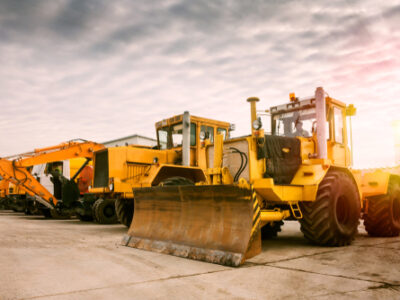 Heavy Equipment That Requires Certification
Heavy Equipment That Requires Certification
Heavy equipment such as cranes, forklifts, and bulldozers are used in many industries, from construction to manufacturing to warehousing. While training and certification are not always required for every type of heavy equipment, there are some types of equipment that do require certification for safety reasons. In this blog post, we’ll take a closer look at the heavy equipment that requires certification and why it’s important to have the proper training.
Crane Operators
One type of heavy equipment that requires certification is cranes. Crane operators must be properly trained and certified in order to safely operate these machines. There are several types of cranes that require certification, including mobile cranes, tower cranes, and overhead cranes.
To become certified, crane operators must complete an accredited training program and pass a written and practical exam. The certification process assesses the operator’s knowledge of crane safety, load calculations, and rigging techniques. It also includes a practical test in which the operator must demonstrate their ability to safely operate a crane.
Why Is Certification Important for Crane Operators?
Crane operation can be dangerous if not done properly. There have been many accidents and fatalities caused by improper crane operation. Becoming certified ensures that crane operators are properly trained, knowledgeable, and able to operate cranes safely. Certification also ensures that crane operators have a basic understanding of safety procedures, as well as the proper techniques for crane setup, loading and unloading, and rigging.
Forklift Operators
Forklifts are used in many industries, from warehousing to manufacturing to construction. While forklifts may seem simple to operate, they can be dangerous if not operated properly. For this reason, forklift operators are required to be certified.
To become certified, forklift operators must complete an accredited training program and pass a written and practical exam. The certification program covers topics such as forklift safety, load calculations, and forklift maintenance. The practical test assesses the operator’s ability to safely operate a forklift, including tasks such as lifting and loading, driving in tight spaces, and maneuvering up and down ramps.
Why Is Certification Important for Forklift Operators?
Forklifts can be dangerous if not operated properly. They can tip over, collide with other objects, or cause injuries to other workers. Becoming certified ensures that forklift operators are properly trained, knowledgeable, and able to operate forklifts safely. Certification ensures that they understand the proper techniques for loading and unloading, as well as safety procedures to help prevent accidents.
Heavy Equipment Mechanics
Heavy equipment mechanics are responsible for maintaining and repairing heavy equipment such as bulldozers, cranes, and excavators. These machines require skilled mechanics who are knowledgeable about the equipment they work on. While certification is not always required for heavy equipment mechanics, having certification can be helpful.
To become certified, mechanics must complete an accredited training program and pass a written and practical exam. The certification program includes topics such as engine repair, hydraulic systems, and electrical systems. The practical test assesses the mechanic’s ability to diagnose problems, repair equipment, and perform routine maintenance tasks.
Why Is Certification Important for Heavy Equipment Mechanics?
Heavy equipment is complex, and it requires skilled mechanics who are knowledgeable about the equipment they work on. Certification ensures that mechanics have the necessary skills and knowledge to repair and maintain heavy equipment properly. This includes understanding how to diagnose problems, perform repairs safely, and maintain equipment to prevent future issues. Certification is also essential in industries where certification is required for insurance or legal purposes.
Conclusion
Heavy equipment that requires certification includes cranes, forklifts, and heavy equipment mechanics. Becoming certified ensures that operators and mechanics are properly trained, knowledgeable, and able to operate or repair equipment safely. Certification also ensures that they have a basic understanding of safety procedures and the proper techniques for operation, loading and unloading, rigging, and equipment maintenance. By investing in proper training and certification, companies can protect their workers, prevent accidents, and promote safety in the workplace.
